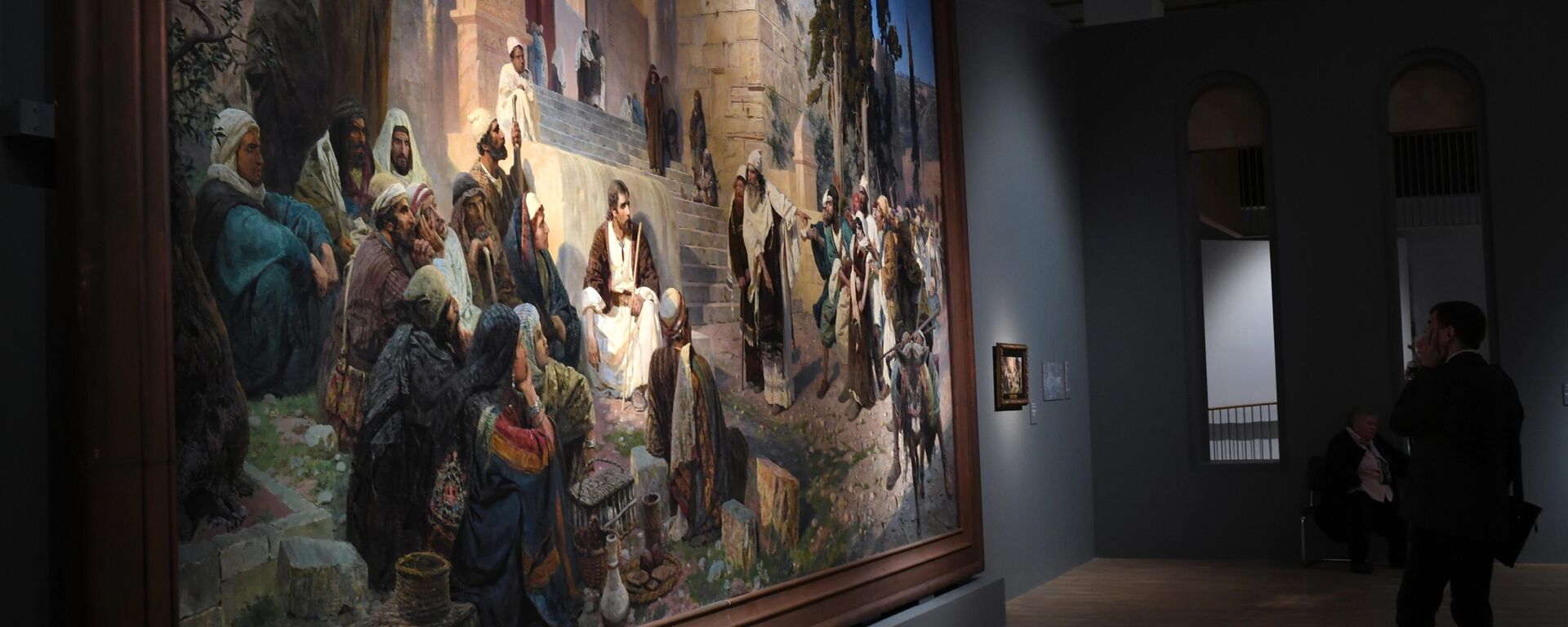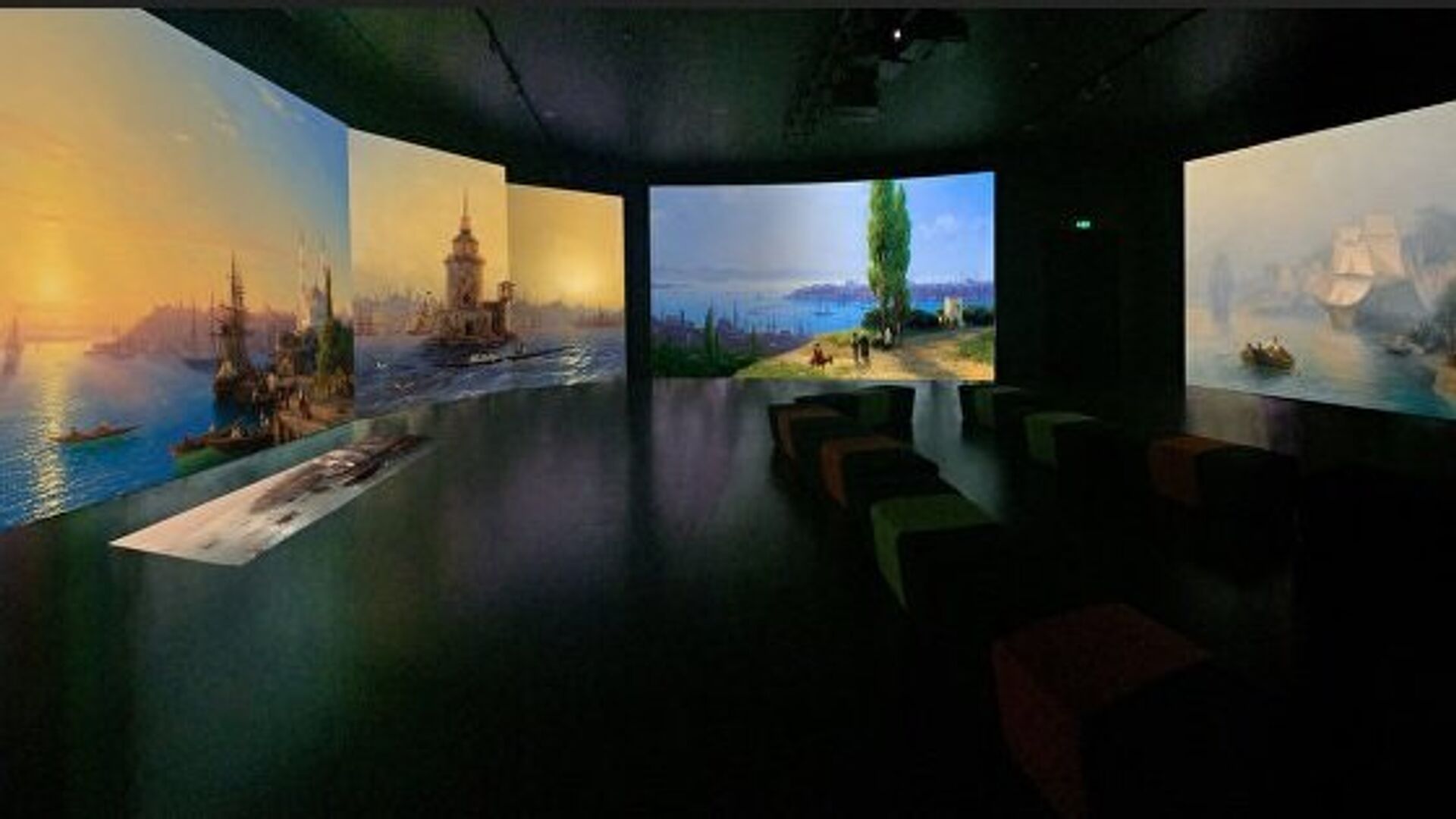https://sputnikglobe.com/20230319/western-art-institutions-ignoring-history-when-changing-nationality-of-russian-artists-1108557853.html
Western Art Institutions Ignoring History When Changing Nationality of Russian Artists
Western Art Institutions Ignoring History When Changing Nationality of Russian Artists
Sputnik International
The actions of Western art institutions that try to reassign nationality of classical Russian artists and composers as Ukrainian or other post-Soviet nationalities due to the ongoing conflict in Ukraine are concerning and ignorant of the larger historical and cultural context
2023-03-19T07:01+0000
2023-03-19T07:01+0000
2023-03-19T07:01+0000
russia
russia
culture
artists
composer
https://cdn1.img.sputnikglobe.com/img/105212/93/1052129319_64:0:624:315_1920x0_80_0_0_b646bbd51b4209c59adcc1dd23a31eca.jpg
Since the beginning of Russia's military operation in Ukraine last February there has been a spike in anti-Russian sentiment in the West that spilled over into the art world. Russia has faced problems retrieving its artworks from overseas exhibitions, and many Western countries have canceled shows by Russian performers, removed Russian literature from educational syllabuses and demolished monuments dedicated to prominent Russian individuals. One of the latest instances of such cultural politics has been the decision of the Metropolitan Museum in New York to label Russian painters Ivan Aivazovsky, Ilya Repin and Arkhip Kuindzhi as Ukrainian. While Aivazovsky was later designated as Armenian on account of his Armenian roots, the ethnic Greek Kuindzhi and self-identified Russian Repin are still listed as "Ukrainian." The Met told the media that "the cataloguing of these works has been updated following research conducted in collaboration with scholars in the field." The Stedelijk Museum in Amsterdam also reclassified Russian avant-garde painter and theorist Kazimir Malevich as Ukrainian. P. C. Neumann, a Berlin-based cultural entrepreneur and producer, chafed at this reasoning, highlighting the fact that it implies a sloppy job on museums' part in the past. Neumann also observed that artists and their works are now weaponized as propaganda, citing Ukrainian Culture Minister Oleksandr Tkachenko, who is known for talking about the "cleansing" of Ukraine's cultural space of Russian influences. The producer showed his dismay by saying that he would not be surprised if Edgar Degas, whose drawing "Russian Dancers" was renamed last year as "Ukrainian Dancers," "suddenly mutated into a French-Ukrainian dual citizen, too." Meanwhile, Swiss-based composer and conductor Anton Lubchenko pointed to the attempts by some institutions and personalities in the West to also designate composers some of Russia's most famous composers like Pyotr Tchaikovsky, Sergei Prokofiev and Igor Stravinsky as Ukrainian. At the same time, the composer recounted his travels across Europe, especially Germany, saying that music by Tchaikovsky, Prokofiev, as well as Modest Mussorgsky, Sergei Rachmaninoff and Dmitri Shostakovitch, is still played everywhere. "No one writes on posters that these are Ukrainian composers and no one includes their compositions in the programs of Ukrainian national concerts. I do not think that this topic is so acute in the West, most likely it is an initiative of certain individuals, particular museums or theaters," Lubchenko concluded.
https://sputnikglobe.com/20230209/russias-culture-ministry-announces-change-of-management-of-iconic-tretyakov-gallery-1107109862.html
russia
Sputnik International
feedback@sputniknews.com
+74956456601
MIA „Rossiya Segodnya“
2023
Sputnik International
feedback@sputniknews.com
+74956456601
MIA „Rossiya Segodnya“
News
en_EN
Sputnik International
feedback@sputniknews.com
+74956456601
MIA „Rossiya Segodnya“
Sputnik International
feedback@sputniknews.com
+74956456601
MIA „Rossiya Segodnya“
russian artists and composers, western art institutions, historical and cultural context
russian artists and composers, western art institutions, historical and cultural context
Western Art Institutions Ignoring History When Changing Nationality of Russian Artists
ST. PETERSBURG (Sputnik) - The actions of Western art institutions that try to reassign nationality of classical Russian artists and composers as Ukrainian or other post-Soviet nationalities are concerning and ignorant of the larger historical and cultural context, according to European art community members surveyed by Sputnik.
Since the beginning of Russia's military operation in Ukraine last February there has been a spike in anti-Russian sentiment in the West that spilled over into the art world. Russia has faced problems retrieving its artworks from overseas exhibitions, and many Western countries have canceled shows by Russian performers, removed Russian literature from educational syllabuses and demolished monuments dedicated to prominent Russian individuals.
One of the latest instances of such cultural politics has been the decision of the Metropolitan Museum in New York to label
Russian painters Ivan Aivazovsky, Ilya Repin and Arkhip Kuindzhi as Ukrainian. While Aivazovsky was later designated as Armenian on account of his Armenian roots, the ethnic Greek Kuindzhi and self-identified Russian Repin are still listed as "Ukrainian." The Met told the media that "the cataloguing of these works has been updated following research conducted in collaboration with scholars in the field." The Stedelijk Museum in Amsterdam also reclassified Russian avant-garde painter and theorist Kazimir Malevich as Ukrainian.
P. C. Neumann, a Berlin-based cultural entrepreneur and producer, chafed at this reasoning, highlighting the fact that it implies a sloppy job on museums' part in the past.
"Museums and their curators withdraw their loyalty to Russian art under pressure from third parties, submit to criticism in social media, and forget that as art historians they are also art protectors and it is their duty to preserve the copyright of art as well," Neumann said.
Neumann also observed that artists and their works are now weaponized as propaganda, citing Ukrainian Culture Minister Oleksandr Tkachenko, who is known for talking about the "cleansing" of Ukraine's cultural space of Russian influences.
"Is the next step to also bring about changes in films such as 'The Russian Revolutionary' by Zaha Hadid or even to demand Malevich's works from the Russian State Museum to Malevich's 'Ukrainian homeland?'" Neumann quipped.
The producer showed his dismay by saying that he would not be surprised if Edgar Degas, whose drawing "Russian Dancers" was renamed last year as "Ukrainian Dancers," "suddenly mutated into a French-Ukrainian dual citizen, too."
Meanwhile, Swiss-based composer and conductor Anton Lubchenko pointed to the attempts by some institutions and personalities in the West to also designate composers some of Russia's most famous composers like Pyotr Tchaikovsky, Sergei Prokofiev and Igor Stravinsky as Ukrainian.
"If Stravinsky, Prokofiev, or Tchaikovsky had been told that they were Ukrainian composers, they would have shrugged their shoulders with a frown of bewilderment, because this vast territory and the people who lived in it have always been a single entity," Lubchenko said, adding that it is impossible to divide cultures across national lines as they are all part of "one big European family."

9 February 2023, 10:52 GMT
At the same time, the composer recounted his travels across Europe, especially Germany, saying that music by Tchaikovsky, Prokofiev, as well as Modest Mussorgsky, Sergei Rachmaninoff and Dmitri Shostakovitch, is still played everywhere.
"No one writes on posters that these are Ukrainian composers and no one includes their compositions in the programs of Ukrainian national concerts. I do not think that this topic is so acute in the West, most likely it is an initiative of certain individuals, particular museums or theaters," Lubchenko concluded.



